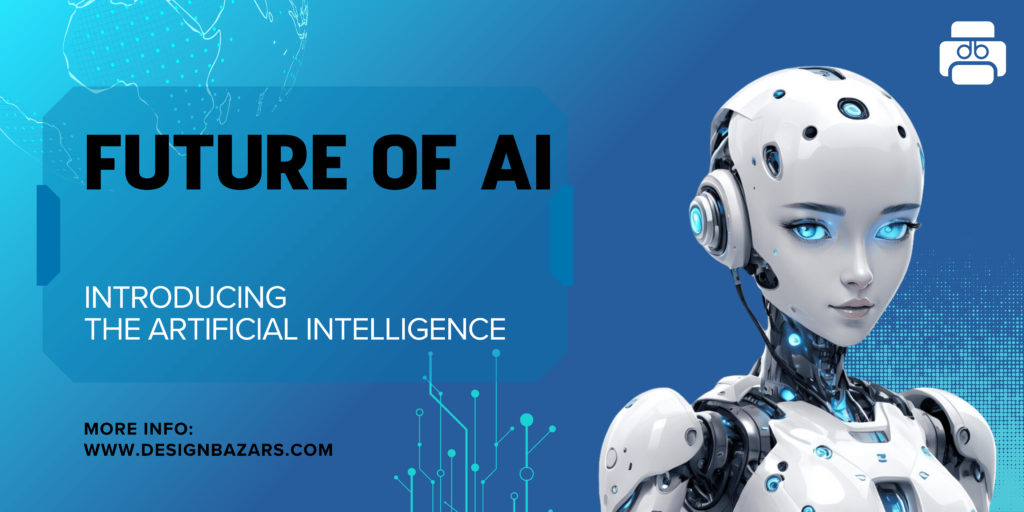The future of artificial intelligence (AI) is a fascinating and rapidly evolving landscape, holding both immense potential and considerable challenges. As we stand at the cusp of a technological revolution, AI is poised to shape industries, societies, and even our everyday lives in ways that were once the stuff of science fiction. From automating mundane tasks to pushing the boundaries of what is possible in fields such as healthcare, education, transportation, and creativity, the future of AI promises to be transformative. But with this great power comes the need for careful consideration of ethical, societal, and economic implications.
One of the most significant aspects of AI’s future is its integration into the workforce. The automation of tasks has already begun, and in the coming decades, many jobs currently performed by humans will likely be handled by intelligent systems. This includes everything from manufacturing jobs to tasks in services like finance, retail, and even law. Some jobs will be entirely displaced, but many will be augmented, allowing workers to focus on more strategic and creative aspects of their roles. While this shift presents opportunities for efficiency and productivity, it also raises the need for reskilling and upskilling the workforce to adapt to this new reality. The challenge will be ensuring that the transition does not disproportionately impact vulnerable groups and that the benefits of AI-driven productivity are broadly distributed.

In healthcare, AI has already begun to demonstrate its potential in diagnosing diseases, predicting patient outcomes, and personalizing treatment plans. Future advancements in AI will likely see the development of more sophisticated algorithms that can analyze vast amounts of medical data, from genetic information to patient histories, allowing for even more precise interventions. AI could revolutionize drug discovery, identifying promising compounds far more quickly than traditional methods. Additionally, AI-enabled devices, such as wearables that monitor health in real time, could drastically improve preventative care by identifying early warning signs of conditions like heart disease or diabetes before they become critical. The challenge will lie in ensuring privacy and security in handling sensitive health data while maintaining transparency in AI-driven medical decisions.
Another area where AI is expected to have profound implications is transportation. Autonomous vehicles, including self-driving cars, trucks, and drones, are already being tested and are expected to become more common in the next decade. The potential benefits are immense: fewer accidents, more efficient use of roads, and reduced congestion. However, the transition to an autonomous transportation ecosystem will require significant infrastructure changes and legal adaptations. Questions about liability in case of accidents, data privacy related to tracking vehicles, and the displacement of driving jobs will need to be addressed. Moreover, ethical issues will arise regarding how autonomous vehicles should make decisions in situations where harm might be unavoidable, such as in unavoidable accidents.
In education, AI has the potential to personalize learning experiences for students, tailoring content to their individual needs and learning speeds. This could significantly improve educational outcomes, especially in underserved regions or in fields like special education, where individualized attention is often lacking. AI-powered tutors could provide one-on-one assistance for students, freeing up teachers to focus on larger classroom management. Additionally, AI can help identify learning patterns and areas where students are struggling, allowing for targeted interventions. However, concerns about data privacy and the potential for algorithmic bias in educational AI tools must be addressed. Furthermore, there will be an ongoing need to balance technology’s role in education with the essential human element that fosters creativity, social skills, and emotional intelligence.
Creativity and the arts are areas where AI has recently made significant strides, generating art, music, literature, and even films. In the future, AI tools could become integral collaborators in the creative process, assisting artists in exploring new styles or generating novel content. However, this raises questions about originality and authorship. If an AI system generates a song, for instance, who owns the rights to that creation? The future of AI in the arts will also require redefining our understanding of creativity and the role of human emotion in artistic expression. As AI systems become more adept at mimicking human creativity, society will need to confront the philosophical and legal ramifications of these developments.
The evolution of AI will not be limited to individual industries but will also fundamentally alter the nature of human interaction. AI-powered systems will become more deeply integrated into daily life through smart assistants, home automation, and personalized recommendations. Imagine a world where your AI-driven home anticipates your needs before you even express them: adjusting lighting and temperature based on your preferences, managing your schedule, and even helping you shop for groceries. While this promises to increase convenience and efficiency, it also raises concerns about privacy and autonomy. As AI systems learn from user behavior, the line between assistance and surveillance can blur, and individuals may find themselves subject to unwanted manipulation or data collection.
Perhaps one of the most profound changes AI will bring is in its ability to drive innovation in fields that are still in their infancy. For example, AI is poised to revolutionize space exploration, enabling more efficient mission planning, autonomous rovers, and even the analysis of vast amounts of data generated by telescopes and space probes. In climate science, AI could be used to develop better models for predicting weather patterns, understanding climate change, and finding sustainable solutions. As AI systems become more sophisticated, their ability to assist in solving global challenges, from hunger to poverty to energy shortages, will be a powerful tool in shaping a better future for humanity.
However, as AI continues to advance, ethical considerations will become even more pressing. The creation of autonomous systems capable of making decisions that directly affect human lives poses fundamental questions about accountability, transparency, and bias. How do we ensure that AI systems are aligned with human values, especially when they are operating in complex, real-world environments? Issues such as algorithmic bias, data privacy, and the potential for AI to be weaponized or used for malicious purposes will require global collaboration and regulation to mitigate risks. A robust framework for AI ethics and governance will be crucial in ensuring that AI serves humanity’s best interests, rather than exacerbating inequality or contributing to harmful outcomes.
Ultimately, the future of AI is not a matter of if, but when. The rapid pace of technological development means that many of the innovations we imagine today will become a reality sooner than we think. The key to harnessing the full potential of AI lies in our ability to guide its evolution thoughtfully and responsibly, ensuring that it becomes a tool for positive change rather than a source of disruption. As we continue to explore and develop this powerful technology, we must remember that AI, at its best, should serve humanity’s interests, help us solve complex problems, and enhance our collective well-being. The future of AI is not just about machines becoming smarter—it’s about creating a smarter world for all.











Whether you're looking for more information, a personalized consultation, or to explore partnership opportunities, we are here to help. Contact us today to discuss how we can assist you in achieving your goals. Let’s work together to create something impactful.

Design Bazars | All Rights Reserved | Copyright @ 2025